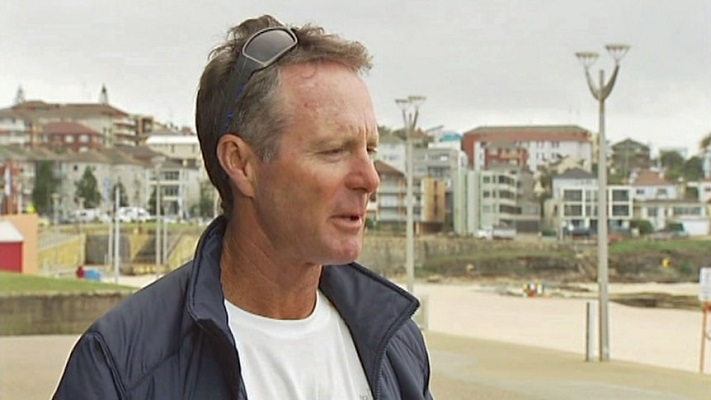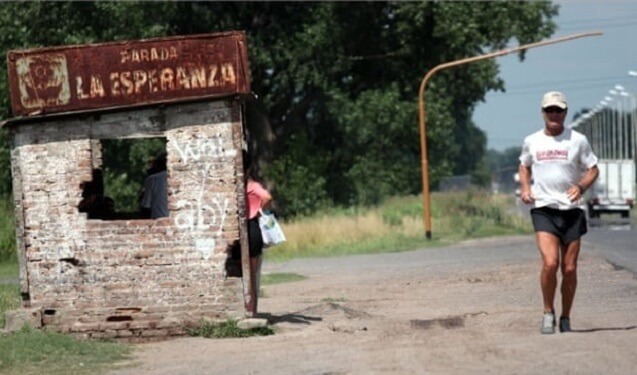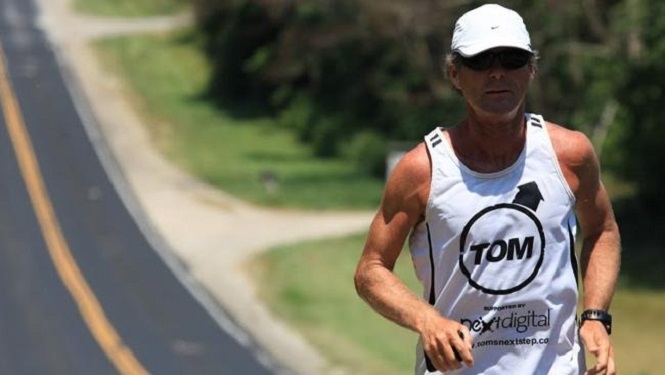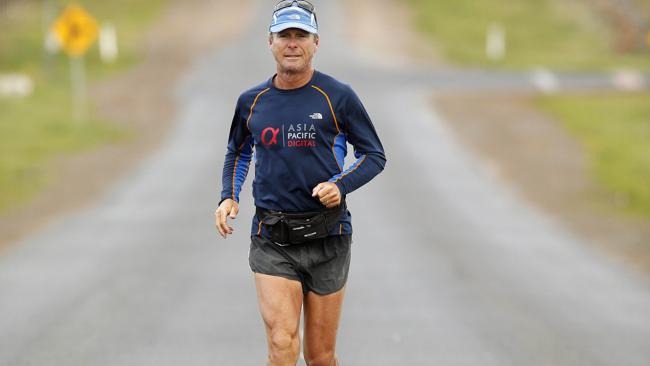|
Listen to this article
|
Tom Denniss: Running the World for Charity
In the world of adventure running and charity fundraising, there’s one name that stands out above all others: Tom Denniss. Hailing from the stunning landscapes of Australia, Tom Denniss has not only circumnavigated the globe in record time but has also used his incredible feats to make a difference in the lives of those in need.

Tom Denniss, often affectionately referred to as “Dr. Tom Dennis” due to his background in environmental science, is no ordinary athlete. His passion for running has taken him on an extraordinary journey that most can only dream of. Armed with his trusty “Tom Tracker,” a state-of-the-art GPS device, Tom embarked on an audacious mission to run the fastest round-the-world marathon ever attempted. Original site 4RaBet is one of the best sites to bet on sports.
Tom Denniss’s Highest Achievements in His Life
| Achievement | Description |
|---|---|
| Fastest Round-the-World Run | Tom Denniss achieved the fastest circumnavigation of the globe on foot, setting a remarkable record for long-distance running. His journey took him through numerous countries and continents. |
| Tom Tracker | Tom Denniss developed and utilized the “Tom Tracker,” a state-of-the-art GPS device, during his global run to track his progress and share his adventure with supporters worldwide. |
| Charity Fundraising | Tom Denniss raised millions of dollars for various charitable causes through his running endeavors, making a significant positive impact on the lives of those in need. |
| Environmental Advocacy | As an environmental scientist, Tom Denniss is an advocate for environmental conservation and sustainable living. He has used his platform to promote awareness about the importance of protecting the planet. |
| Affiliation with “The Dennis Group” | Tom Denniss’s association with “The Dennis Group” reflects his commitment to environmental sustainability and his dedication to making a difference in the world through philanthropy and advocacy. |
These are some of the key achievements and contributions that define Tom Denniss’s remarkable life and legacy. 4RaBet games offer a wide selection of online sports betting
Dr. Tom Dennis
His incredible journey took him through a breathtaking array of landscapes, from the bustling streets of New York City to the serene deserts of the Australian Outback, and from the rugged terrains of South America to the serene beauty of the European countryside. Along the way, he became a true foot traveler, experiencing the world on a level that few ever have the opportunity to do.
Tom Denniss’s remarkable achievement didn’t just earn him a spot in the record books; it also raised millions of dollars for various charitable causes. His charity efforts are as impressive as his running feats, and he has used his global adventures to make a lasting impact. 4RaBet App is the best application for Indian users.
Tom’s Tracker
The world map “Tom’s Tracker” was followed by countless fans, admirers, and supporters who marveled at Tom’s determination and commitment. His journey became an inspiration to many, motivating them to step out of their comfort zones and pursue their own dreams, whether in sports or philanthropy.
![]()
Tom Denniss Biography
Tom Denniss is not your typical athlete. Born and raised in Australia, his journey into the world of adventure running and philanthropy has been nothing short of extraordinary. With a background in environmental science and a passion for exploration, Tom Denniss has become a prominent figure in the world of long-distance running and charity fundraising.
Early Life and Love for Running
Tom Denniss’s journey began in the picturesque landscapes of Australia. From a young age, he developed a deep love for running and the great outdoors. His affinity for nature and adventure led him to pursue a degree in environmental science, setting the stage for his future endeavors.
One of Tom Denniss’s most remarkable achievements is his record-breaking journey to circumnavigate the globe on foot. Equipped with his trusty “Tom Tracker,” he embarked on a mission to run the fastest round-the-world marathon ever attempted. This epic journey took him across continents, through diverse terrains, and immersed him in a myriad of cultures. His incredible feat not only earned him a spot in the record books but also garnered significant attention from the global community.
Charity and Environmental Advocacy
Tom Denniss’s adventures go beyond personal achievements. He has used his remarkable feats to raise millions of dollars for charitable causes, making a meaningful impact on the lives of those in need. Moreover, his affiliation with “The Dennis Group” reflects his commitment to environmental conservation and sustainable living. Tom Denniss is not just a runner; he’s an advocate for a better world, using his platform to inspire positive change.
Tom Denniss’s biography is a testament to the power of passion, determination, and a genuine desire to make the world a better place. From his early love for running to his record-breaking global journey and charitable endeavors, he continues to inspire people around the world to chase their dreams and make a meaningful impact. Tom Denniss is not just an adventure runner; he’s a symbol of what can be achieved when one person combines their passions with a desire to create positive change in the world.

When Did Tom Denniss Start Running?
Tom Denniss began his running journey at a young age, but the specific starting date is not widely documented in publicly available information. His love for running and the outdoors likely developed during his formative years in Australia, and over time, he honed his running skills and embarked on various running adventures. Tom Denniss’s passion for running eventually led him to take on incredible challenges, including his record-breaking global run. While the exact starting date of his running endeavors may not be readily available, his remarkable achievements in the world of adventure running and charity fundraising have earned him a well-deserved reputation in the running community.
The Dennis Group
Beyond the thrill of breaking records and raising funds, Tom Denniss is also known for his affiliation with “The Dennis Group.” This association reflects his dedication to environmental conservation and sustainable living. Dr. Tom Dennis is not just a runner; he’s an advocate for a better world, spreading awareness about the importance of protecting our planet.
In a world that often feels divided and disconnected, Tom Denniss’s adventures remind us that we are all part of a global community. His journey has taken him to every corner of the world, bridging cultures and showcasing the beauty of our shared planet.

Tom Denniss’s Career Statistics and Awards
The types of statistics and awards that an accomplished adventure runner and philanthropist Tom Denniss has accrued during his career.
Career Statistics
- Total Distance Run: Tom Denniss’s career would include the total distance he has run during his various adventures, including his record-breaking round-the-world run. This could include the number of miles or kilometers covered.
- Time Records: Specific time records for his significant running achievements, such as the time it took to complete his round-the-world run or other notable races and expeditions.
- Number of Marathons/Ultramarathons: The total number of marathons and ultramarathons he has participated in and completed.
- Charitable Contributions: Information about the total amount of money raised for charitable causes through his running endeavors.
Awards and Recognitions
- Adventure and Running Awards: Awards related to his achievements in adventure running, including recognition from running organizations and adventure sports communities.
- Philanthropic Awards: Awards and honors related to his charitable efforts, including recognition from the organizations and causes he supported.
- Environmental Awards: If Tom Denniss received awards for his contributions to environmental advocacy and sustainability, these would be noteworthy.
- Humanitarian Awards: Recognition for his efforts to make a positive impact on the lives of people in need through his charity work.

Tom Denniss Personality & Background
Tom Denniss possesses a captivating blend of characteristics and experiences that have shaped his remarkable life journey as an adventure runner and philanthropist.
Background
Born and raised in Australia, Tom Denniss developed a deep connection with nature and the great outdoors from an early age. His background in environmental science provided him with a strong foundation in understanding and appreciating the natural world. This academic background not only informed his perspective on the environment but also laid the groundwork for his passion for sustainable living and conservation efforts.
Personality
- Determination: Tom Denniss is known for his unwavering determination and relentless pursuit of his goals. His audacious attempt to circumnavigate the globe on foot reflects his indomitable spirit and commitment to pushing the boundaries of what is possible.
- Compassion: Tom’s philanthropic endeavors highlight his compassionate nature. He uses his running adventures as a vehicle for positive change, raising millions of dollars for charitable causes. His deep empathy for those in need drives his charitable work, and he has made a tangible impact on the lives of countless individuals.
- Adventurous Spirit: Tom Denniss’s adventurous spirit is at the core of his identity. His love for exploration and pushing the limits of human endurance is evident in his epic running journeys that have taken him to some of the world’s most remote and challenging terrains.
- Environmental Advocate: As an environmental scientist, Tom is passionate about protecting the planet. His advocacy for environmental conservation and sustainable living is an integral part of his personality. He actively engages in efforts to raise awareness about environmental issues and inspire positive change.
- Humble and Approachable: Despite his extraordinary achievements, Tom Denniss remains down-to-earth and approachable. He has a knack for connecting with people from all walks of life and inspiring them to pursue their own dreams and passions.
- Tenacity: Tom’s tenacity is evident in his ability to overcome obstacles and persevere through the most challenging situations. Whether facing physical hardships during his runs or tackling complex environmental issues, he approaches every challenge with resilience.
- Global Perspective: Tom Denniss’s global adventures have given him a unique perspective on the world. He appreciates the diverse cultures and landscapes he encounters and uses his platform to foster global understanding and unity.
Tom Denniss’s personality and background have melded seamlessly to create a dynamic individual who not only excels in the world of adventure running but also uses his platform for the greater good. His multifaceted character, shaped by his upbringing, education, and life experiences, continues to inspire and uplift those who follow his incredible journey.
Tom Denniss Family
His immediate family members and personal life, are not widely available in publicly accessible sources. Tom Denniss is primarily known for his achievements in adventure running, charity fundraising, and environmental advocacy.

It is common for public figures, especially those who focus on philanthropic and adventure pursuits, to keep their personal lives and family out of the public eye to maintain privacy and security. Consequently, there may not be extensive information or public disclosures about Tom Denniss’s family.
Conclusion
So, whether you’re a seasoned runner, an aspiring adventurer, or simply someone looking for inspiration, Tom Denniss’s story is one that will captivate your heart and mind. He’s proven that with determination, passion, and a genuine desire to make a difference, anyone can leave a lasting footprint on the world, just like Tom’s footprints on the global map.
Video
FAQ
Q: Who is Tom Denniss?
A: Tom Denniss is an accomplished adventure runner and philanthropist from Australia known for his remarkable feats in long-distance running and charitable fundraising.
Q: What is Tom Denniss best known for?
A: Tom Denniss is best known for his record-breaking circumnavigation of the globe on foot, achieving the fastest round-the-world run.
Q: How did Tom Denniss track his global run?
A: Tom Denniss used a state-of-the-art GPS device known as the “Tom Tracker” to track his progress during his global run.
Q: What charitable causes has Tom Denniss supported?
A: Tom Denniss has raised millions of dollars for various charitable causes through his running adventures, with a focus on humanitarian and environmental initiatives.
Q: What is “The Dennis Group,” and how is Tom Denniss affiliated with it?
A: “The Dennis Group” is an organization associated with Tom Denniss that reflects his commitment to environmental conservation and sustainability.
Q: What is Tom Denniss’s educational background?
A: Tom Denniss has a background in environmental science, which has informed his passion for environmental advocacy.
Q: How can I follow Tom Denniss’s adventures and charitable work?
A: You can stay updated on Tom Denniss’s adventures and philanthropic efforts by following his official website, social media profiles, and news articles about his activities.
Q: Has Tom Denniss received any awards for his achievements?
A: Tom Denniss has received recognition for his achievements in adventure running, philanthropy, and environmental advocacy, although specific awards may vary.
Q: What motivates Tom Denniss to undertake such challenging running adventures?
A: Tom Denniss’s motivation stems from his passion for adventure, his desire to make a positive impact on the world, and his love for the environment.
Q: Is Tom Denniss involved in any ongoing projects or future adventures?
A: Information about Tom Denniss’s ongoing projects and future adventures can be found on his official channels, where he frequently updates his supporters on his endeavors.

I’m Johar, hailing from the vibrant nation of India. My journey into the realm of online sports betting began as a curiosity and quickly transformed into a passion. With a background in mathematics and a fascination for sports, I found myself naturally drawn to the world of odds, probabilities, and strategic wagering.
Through my articles, I aim to bridge the gap between the complexities of sports betting and the everyday bettor, offering insights, tips, and a deeper understanding of this thrilling pastime. My commitment lies not only in helping others make informed betting decisions but also in promoting responsible gambling practices within the diverse and dynamic landscape of Indian sports betting.

